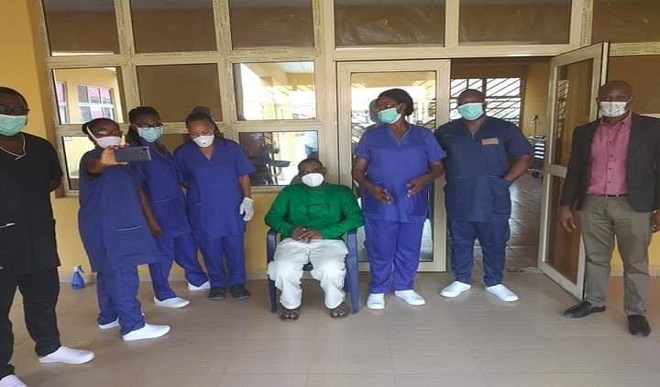Nigeria has announced new guidelines to determine when Covid-19 patients can be discharged, following science that show how long individual patients can infect other people.
Patients showing symptoms can be discharged at least 10 days after the onset of symptoms and up to three days without symptoms, according to the new guidelines.
But patients who are positive but show no symptoms, also known as asymptomatic patients, can be discharged 14 days after the viral molecular testing shows returns positive.
“We no longer have to wait for a negative test to discharge, with confidence that you can go home and you are no longer infective or putting family or friends at risk,” director-general of the Nigeria Centre for Disease Control Chikwe Ihekweazu told a briefing of the Presidential Task Force on Covid-19 on Thursday.
“If your symptoms lasts for longer, we will wait while managing,” Ihekweazu said.
This is the third version of guideline on management of Covid-19, and covers two critical groups of patients—those who show symptoms after contracting the virus and those who show no symptoms despite contracting the virus.
“The symptomatic patients will now be discharged at least 10 days after symptom onset and at least three days without symptoms while asymptomatic patients can be discharged 14 days after the first PCR positive test.
While noting that physicians are hesitant about the new guidelines, he assured them that the new guideline is effective.
“So we are confident on the impact if this, change is difficult, because we have been saying you have to have a negative test, so even though we have published this result, physicians are still hesitating to use then, but I assume everyone managing cases that 14 days,” he added.
Ihekweazu said that the centre has also removed the use of anti-virals like Chloroquine and hydroxychloroquine, from its treatment guidelines.
He said the antivirals will now be used only on trials and also casually, because its saftey is uncertain.
“The treatment protocol remains to manage symptoms, pre-existing conditions, supplemental oxygen therapy to different extents, treatment of bacterial infections and ensuring that patients are well nourished and well hydrated,” he said.

 Join Daily Trust WhatsApp Community For Quick Access To News and Happenings Around You.
Join Daily Trust WhatsApp Community For Quick Access To News and Happenings Around You.


